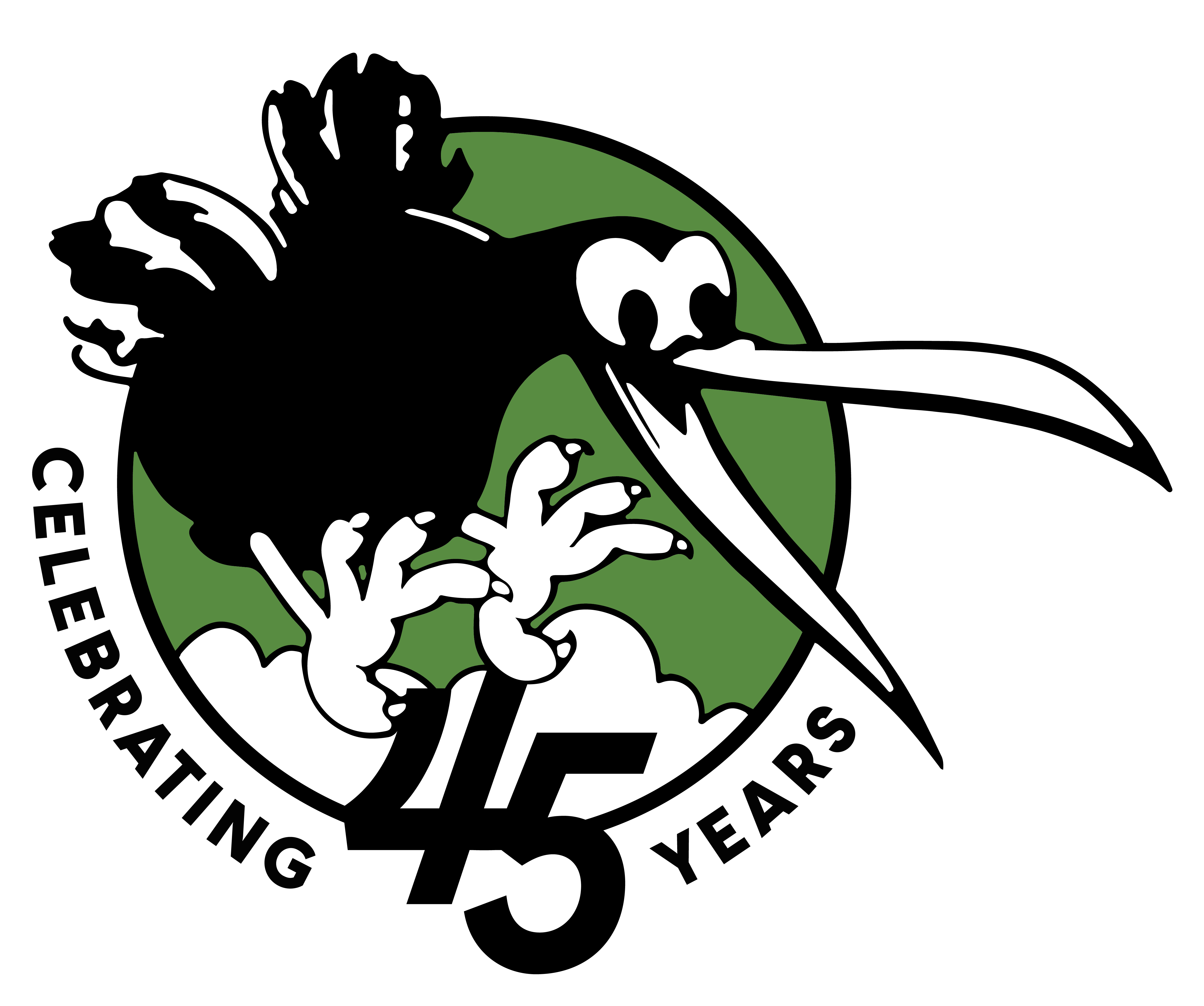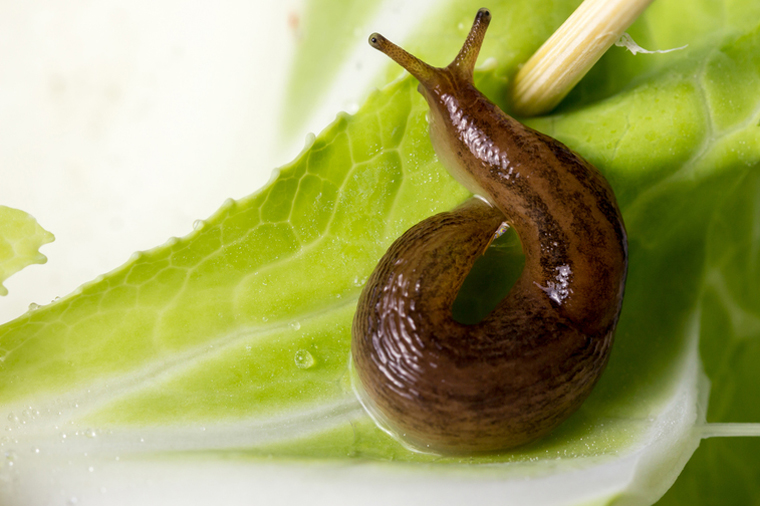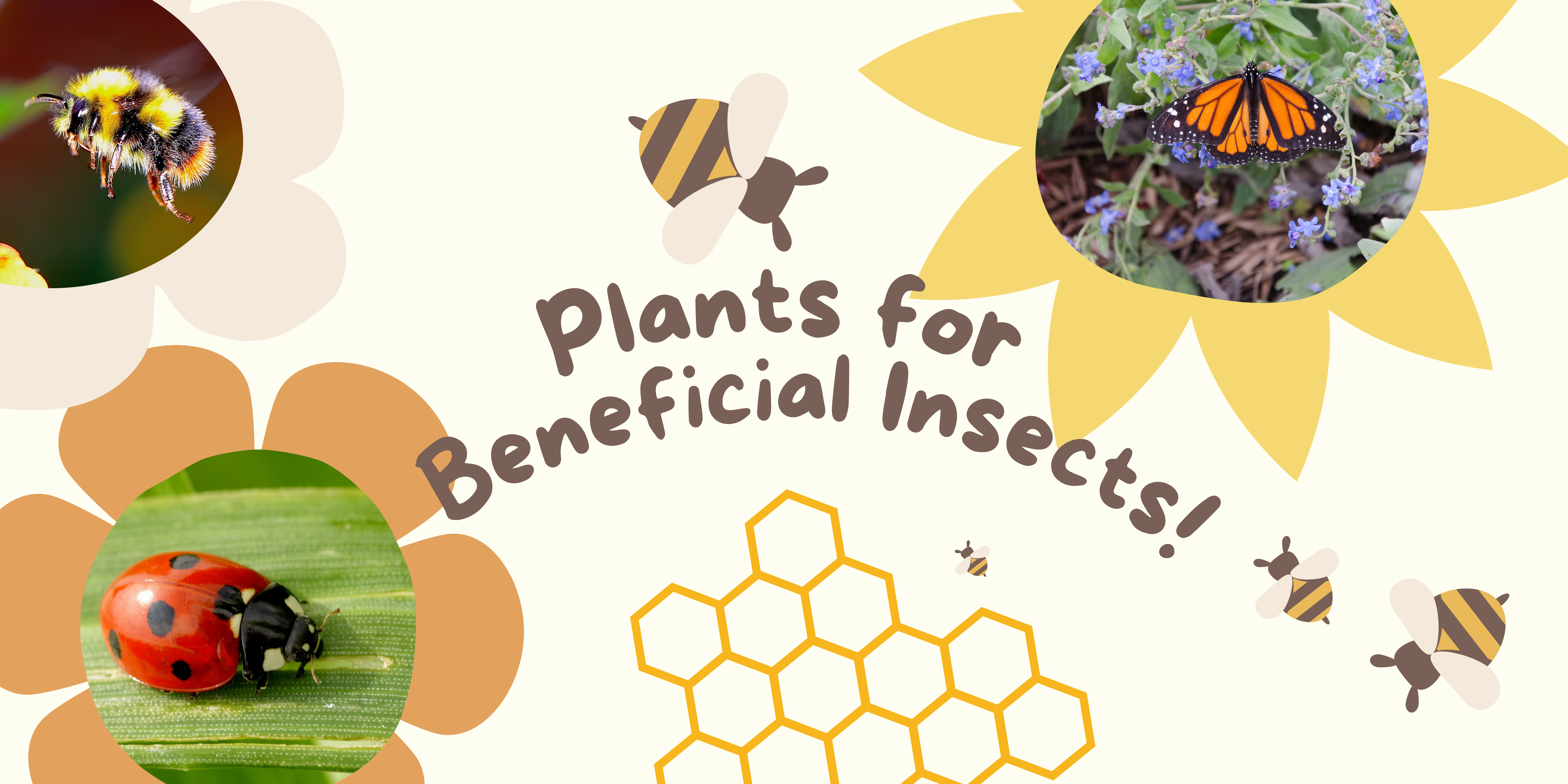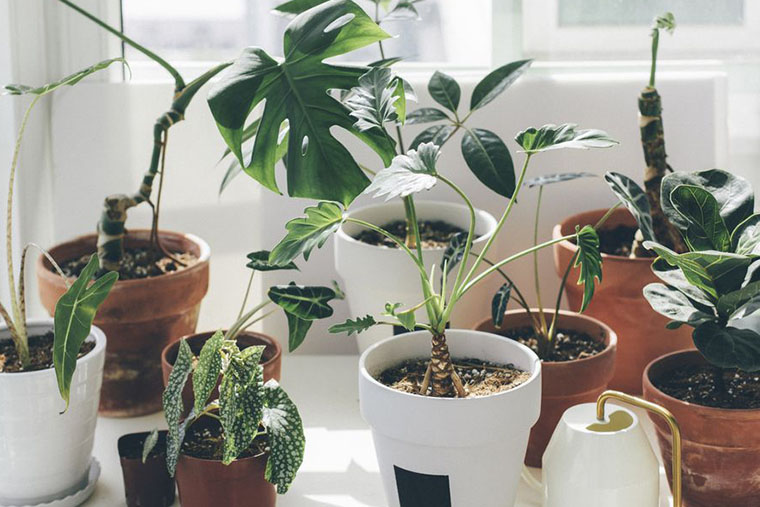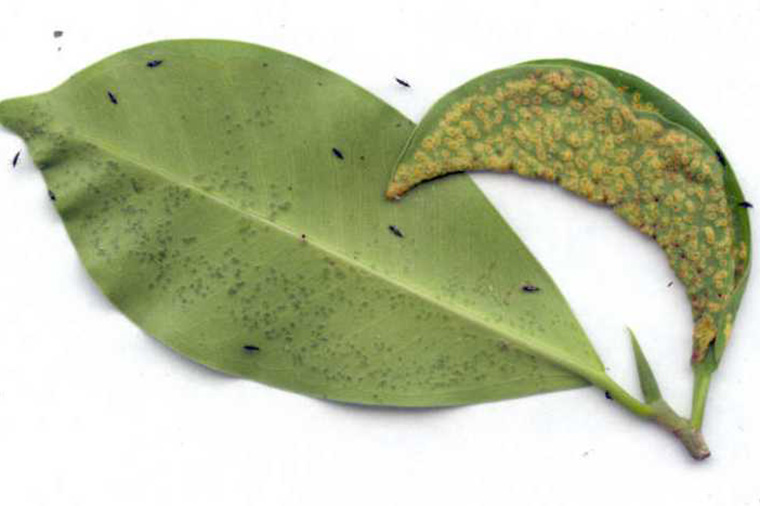What Are Slugs?
The simple answer is “a snail without a shell”. However, the more scientific but sci-fi sounding answer is “any visibly shell-less terrestrial gastropod mollusc”. There are over 50,000 species of Mollusca all over the world, many of which are aquatic species, but Albertan gardeners are most acquainted with the Grey Garden Slug.
The Grey Garden Slug has a grey elongate slimy soft body, typically 5-20mm in length, with one pair of long antennae on the upper head and one short pair of antennae on the underside of the head. Slugs do not have legs or feet, but rather one muscular foot on the underside of their body to slowly move them forward. Similar to their aquatic relatives, slugs breathe through gills that need to be wet otherwise their system will not work. Slugs also have a well developed nervous system, well developed eyes, and a large brain, making them one of the smartest pests you’ll face in the garden.
Slugs Like to Hide
Since slugs require moist conditions, they are limited to wetter areas. To avoid the hot sun, slugs typically come out of hiding at night or on cool overcast or rainy days. They are most active between 3 and 6am. During day hours they will retreat to anywhere that’s shaded and moist. Common hiding places include under logs or timbers, under pots or containers, under mulch or overgrown vegetation, even under rocks.
Slugs Like to Eat
Garden slugs are voracious eaters and can easily destroy entire crops if control measures are not put in place and the slugs are allowed to multiply. They will also eat just about anything, but they do have some preferences. Slugs will go after tender greens first, especially lettuces and herbs, but they also really enjoy strawberries, carrots, potatoes, peppers plants, zucchini, young pumpkins leaves, young cucumbers, beans and young celery. Some flowering plants are also known to attract slugs like marigolds, delphiniums, calendula, dahlias, zinnias, dandelions, sunflowers, petunias, and hostas are total slug magnets. Really this list could go on for quite some time… they like to eat and they’re not that picky.
Slugs Like to Multiply
Not only do they like to eat, but they also like to multiply. Slugs are a hermaphroditic species capable of impregnating itself. That’s right, slugs have both female and male organs and if they are unable to find a nearby mate they can lay their own fertilized eggs, no help needed. Slugs typically lay eggs in groups in the soil or under debris all season long. The eggs hatch in about a month, reaching sexual maturity in 3 months, and go on living another 6 to 9 months laying eggs of their own. Adults, immature adults, and eggs are all capable of surviving winter, even our Alberta winters. This means they can easily multiply their numbers year after year once they’ve found the perfect spot… like a well cared-for vegetable garden.
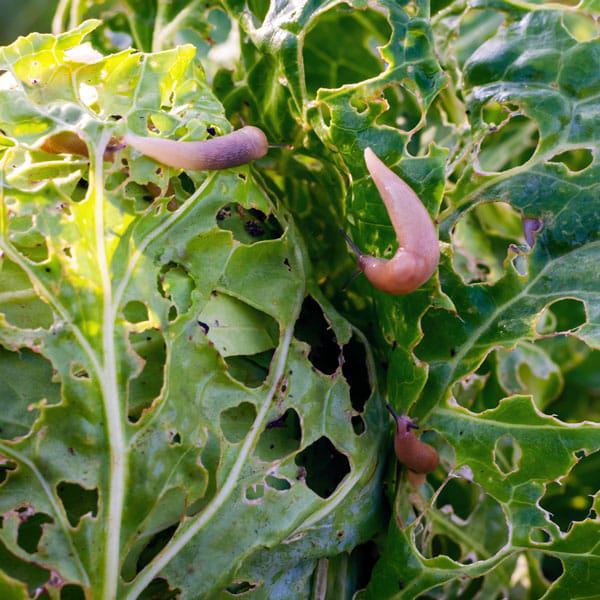
How to Manage Slugs
Luckily, there are a number of ways to manage garden slugs, the trick is to get your controls in place as early in the season as possible. It is also helpful to use more than one strategy, the more controls you have in place, the higher your chances of decreasing their numbers and protecting your crops.
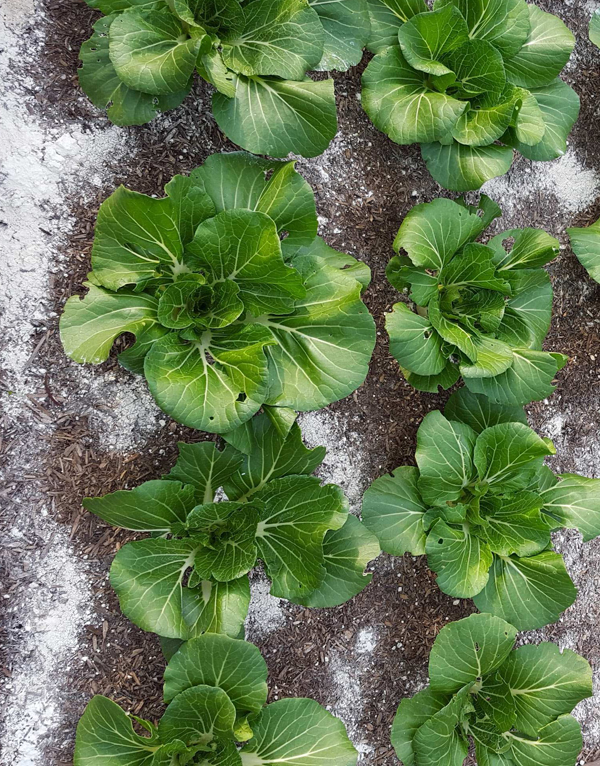
Physical Controls
Copper : Raised beds and container gardens can be wrapped with copper wire or copper mesh. A chemical reaction happens when slugs crawl over the metal, which causes unpleasant feelings on their skin. Therefore, they avoid moving over copper.
Shells : Another option is to surround vulnerable plants with finely crushed eggshells or diatomaceous earth directly over the soil. Diatomaceous earth is a fine powder made from crushed fossilized water plants. Both options with irritate the the sensitive membranes on the slug’s skin and most will avoid crossing. However, both shells and diatomaceous earth should be reapplied are rain or watering. TIP : Eggshells can be crushed to a fine powder in a food processor, but be sure to wear a mask as it can kick up a fine dust that can irritate the lungs if breathed in. Similarly, you will want to wear a mask when applying both finely crushed eggshells and diatomaceous earth to the garden.
Coffee Grounds : Caffeine is another substance slugs prefer to avoid. While it is not as strong a deterrent as shells and DE can be, the three mixed together can stretch your supply and have a stronger effect than any one on its own.
Sand : Sand barriers can be created around the outside edge of your garden beds or around the base of your garden boxes to help deter slugs away from your veggies. Sand by nature tends to be very dry and gritty, it will also dry out very quickly relative to soil or mulch, creating a effective barrier slugs will not want to cross.
Beer Traps : Beer traps are a popular choice but take a fair bit of upkeep. Small tin cans, such as tuna cans or cat food cans, can be cleaned out and placed around the outskirts of your garden. The slugs will be attracted to the scent of the beer and crawl inside and drown. Beer traps need to be emptied every morning and refilled every evening to be effective.
Wood Traps : Another popular method is to lay out long 2×4’s along the sides of your garden. In the morning time, slugs will take shelter under the timbers, all you have to do is flip them over and remove the slugs in your prefered method.
Biological Controls
Predators : In addition to some physical controls, biological controls can be really effective. Slugs have natural enemies and by attracting them into your garden you can help eliminate the slippery slugs that are too sneaky to get caught. Predators include predatory ground beetles, toads, salamanders, garter snakes, magpies, chickens, & ducks.
Nematodes : Parasitic nematodes are another option and can usually be bought at your local hardware store or garden centre, if not, try an online retailer.
Chemical Controls
Despite our best efforts, sometimes the slugs win, especially if it’s been a particularly cool and wet year. If it comes down to chemical warfare on those slimy slugs, there are some more nature friendly options. Organic Slug Pellets are approved for organic gardening, but still pose some risks. They are not completely non toxic to other animals and can kill earthworms. However, it is still a safer alternative other conventional slug killers. TIP : Before buying or using any chemical slug products read the label carefully and do some additional research before using on your vegetable beds.
 |
| 